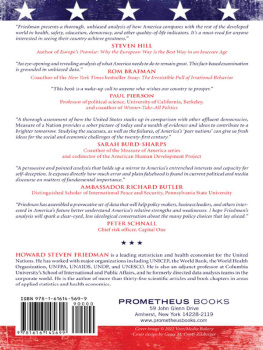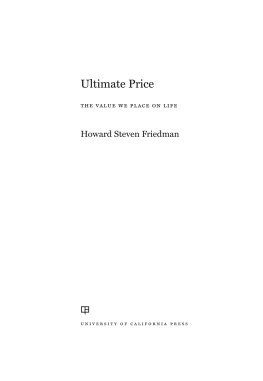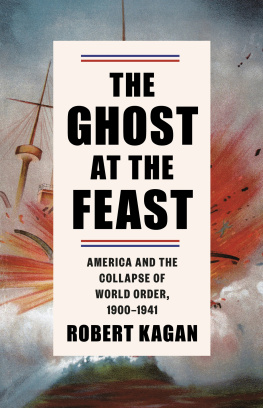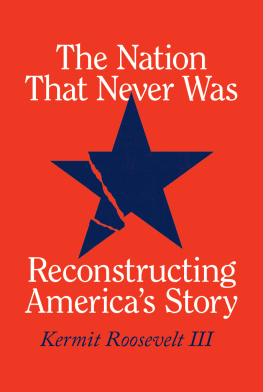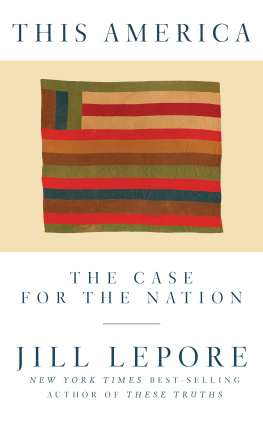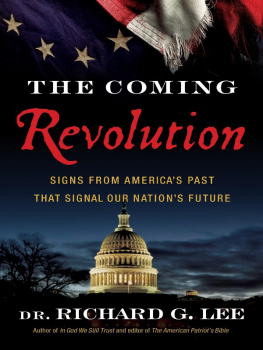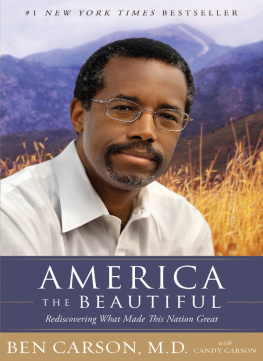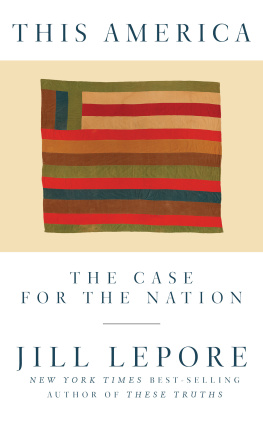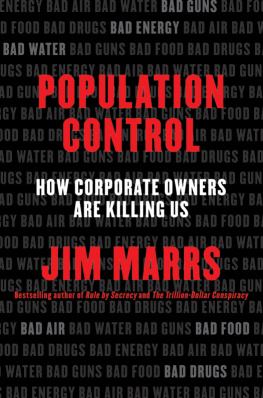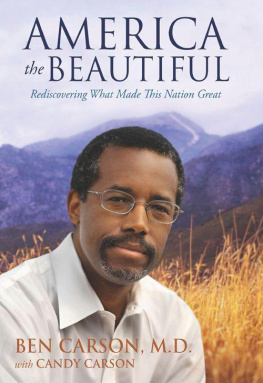
Developing this book has been a goal of mine for years. This book is a reflection of my love of data analysis and concern for the trajectory of the United States.
I wish to acknowledge those who helped directly in creating the book as well as those who helped me to reach this point in my career.
I would like to first thank Gordon Warnock, an incredible person who has helped move this project from the first stages of a book query all the way to a final product with enthusiasm, perseverance, and vision. By Gordon's side has been Andrea Hurst's watchful eye and guidance. Susanna Margolis was invaluable for her advice, support, and guidance in writing and editing. Steven L. Mitchell and Mariel Bard were most helpful in editing the book.
A number of people provided critical reviews of the content, including Sameer Sampat, Alan Friedman, Jerrold Friedman, Eva Weissman, Stan Bernstein, Steven Hill, Brett DiResta, Martin Leshner, Scott Walsh, Michael Friedman, Kin Chung, Paul Thurman, Anna Yusim, Mengjia Liang, and Christos Constantinidis. I would specifically like to mention Phil Bastian for his support in developing the equality selection as well as Peggy Cleveland and Christopher Snowden for their detailed reviews of the entire book.
This book represents a merging of research, analysis, business skills, teaching, and writing. As such, I wish to recognize some of the people who helped me develop in those different areas.
There are a number of teachers who helped me develop my critical thinking skills that I wish to recognize, including Muriel Cohen, Phil Pignatelli, Howard Bender, Louise MacCallum, Julia Yanoshefski, Daniel Weiss, Noel Yeh, Robert Pompi, Eric Cotts, Robert Silverstein, Tania Eicoff, and Yong Ho.
There are some excellent researchers who also helped me in developing my scientific skills and motivating my interest in science, including Charles Nelson, James Dix, Craig Tepley, Carey Priebe, Rudiger von der Heydt, Vernon Mountcastle, Eric Young, Hong Zhou, Tessa Tan Torres, Prakash Navaratnam, Lynne Curry, Karin Stenberg, Michael Steinmetz, Eva Weissman, Stan Bernstein, Netsanet Workie, Carlos Carrera, Bidia Deperthes, Garry Conille, John Stover, Brian Lutz, Tom O'Connell, Gonzalo Pizarro, Jacqui Darroch, and Sharif Egal.
Some of the managers I have had the pleasure to work for have also been most important in my development, including Paul Collins, Mac Purrington, Charissa Lin, Peter Schnall, Werner Haug, Laura Laski, and Hedia Belhaj. I specifically would like to single out Jacqueline Mahon for her tremendous leadership, support, and friendship.
Additionally, I would like to recognize Columbia University, especially Dean Dan McIntyre and Professor Paul Thurman for providing a wonderful environment for teaching and learning, as well as the university's tremendous students.
I would also like to thank my family members for their support (and forgiveness for missing so many family events as I worked to finish the manuscript): Ann Friedman, Alan Friedman, Joshua Krulewitz, Tammy Krulewitz, Jerrold Friedman, and Marizabel Baez Friedman. Though it has been many years since we last spoke, I fondly recall my grandfather's passionate interest in politics, flavoring nearly every piece of news with a healthy dose of skepticism.
Lastly, I would like to thank Shui Chen not only for helping me with finishing the graphs but, much more importantly, for believing in my dreams.

Health is at the heart of human progress. It determines whether parents can work to support their families, children can attend school, women can survive childbirth, and infants can grow and thrive. Where health services are strong and accessible, families and communities flourish. Where health services are inaccessible, weak, or nonexistent, families suffer, adults die prematurely, and communities unravel.
from the US Government Global Health Initiative Strategy, available online at http://www.ghi.gov/resources/stragegies/.
Nothing else about our lives as Americans matters at all if we don't have a reasonable expectation of a healthy life. Basic safety, the enrichment of education, our entire democratic process, our own individual chance at social mobility: none of these things has any importance or interest if we cannot take advantage of them. And without health, we can't.
Maybe that's why our Declaration of Independence places life first in the list of unalienable rights with which we are naturally endowed. We all get just the one life, and living it in health and for as long as possible is basic to everything else that we do and everything else that affects us. So it makes sense that health should be the first comparison we look at, for it underlies all the other assessments this book explores.
But how do we measure health? So many factors determine and affect it. We have no control over many of themgender, for example, or genes, or even the culture in which we grow up. The air we breathe, the water we drink, and other environmental realities affect our health, but these are realities we can only change immediately by moving our location. We have limited control over where we work and how much income we earn, our social status, and our education, yet all of these impact our health, as do lifestyle choices such as diet, exercise, and personal habits like smoking, use of alcohol and drugs, health practices, and coping mechanisms.
Health is a subject with which we seem to be obsessed. Wonder drugs, diet fads, and super foods buzz around American pop culture and are regular topics on radio and television talk shows. Feats of medical practice that seem miraculous routinely lead the headlines. There isn't a newspaper or news broadcast that isn't staffed with a health columnist or physician interpreting the latest medical research results and advising us all on lifestyle choices. We thrill to the story of the child from a distant land, born with a rare ailment, who is flown here to undergo a special life-saving procedure available only in America. We read regularly about world leaders arriving in private jets for cutting-edge treatments developed by American researchers in American laboratories.
Essential to it all is our health system, the totality of medical and healthcare products, systems, services, people and resources, and physical facilities that affect us throughout our lifetime. In fact, the healthcare system starts to affect us even before our lifetime. From the moment our mothers initiate prenatal care to the debilitations of old age, and for every bruise, break, sickness, and stress in between, our healthcare system is where we go for a healthier life and more of it. So, how the system responds is central to measuring the health of our nation as a whole.
The clich dutifully repeated by so many politicians, perhaps buoyed by the stories of those outstanding medical accomplishments, is that the United States enjoys the best healthcare in the world. It's an oft-used phrase, its frequency of use matched only by its inaccuracy, as we will discover in separating the fiction from the facts about how the United States's healthcare stacks up against the competition.
The simplest and most compelling metric for assessing health and comparing health outcomes is life expectancy, the average number of years an individual can expect to live. On that measure, the United States does very badly indeed, registering the lowest life expectancy in our group. in the group. Moreover, we spend per person nearly twice as much as all the other nations in our competitor group and in some cases as much as four times more. More money for the worst outcome. You don't have to be on the board of directors to know a bad return on investment when you see one.
Next page
